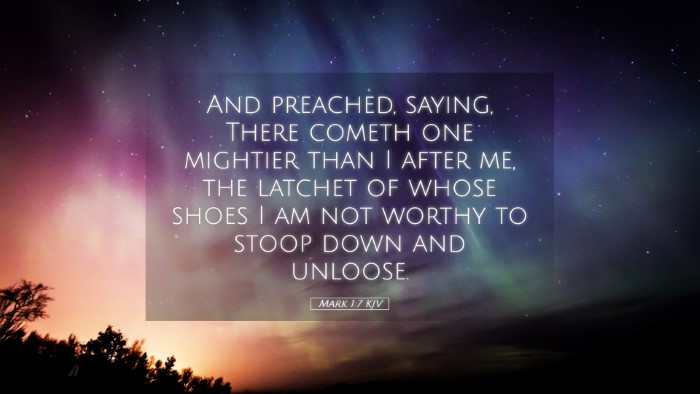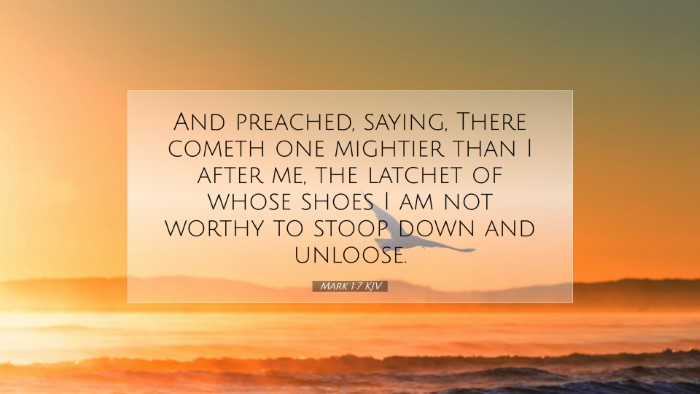Old Testament
Genesis Exodus Leviticus Numbers Deuteronomy Joshua Judges Ruth 1 Samuel 2 Samuel 1 Kings 2 Kings 1 Chronicles 2 Chronicles Ezra Nehemiah Esther Job Psalms Proverbs Ecclesiastes Song of Solomon Isaiah Jeremiah Lamentations Ezekiel Daniel Hosea Joel Amos Obadiah Jonah Micah Nahum Habakkuk Zephaniah Haggai Zechariah MalachiVerse
Mark 1:1 Mark 1:2 Mark 1:3 Mark 1:4 Mark 1:5 Mark 1:6 Mark 1:7 Mark 1:8 Mark 1:9 Mark 1:10 Mark 1:11 Mark 1:12 Mark 1:13 Mark 1:14 Mark 1:15 Mark 1:16 Mark 1:17 Mark 1:18 Mark 1:19 Mark 1:20 Mark 1:21 Mark 1:22 Mark 1:23 Mark 1:24 Mark 1:25 Mark 1:26 Mark 1:27 Mark 1:28 Mark 1:29 Mark 1:30 Mark 1:31 Mark 1:32 Mark 1:33 Mark 1:34 Mark 1:35 Mark 1:36 Mark 1:37 Mark 1:38 Mark 1:39 Mark 1:40 Mark 1:41 Mark 1:42 Mark 1:43 Mark 1:44 Mark 1:45

